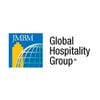Junk Fees: FTC finally adopts the Final Junk Fees Rule but with focus on Hotels, Short-Term Lodging & LIve Event Ticket Sales
Finally!
The Federal Trade Commission (FTC) has been critically looking at “junk fees” for a long time. Over several years, it proposed banning “Unfair or Deceptive Fees” across many industries. However, on December 17, 2024, the FTC surprised many when it published a significantly revised version as its final “Junk Fees Rule” (16 CFR Part 464). The Rule is scheduled to become effective 120 days after its publication in the Federal Register.
Unlike its predecessor proposals, The Final Rule is directed primarily to live event ticket sales and the short-term lodging industry (including hotels and vacation rentals). It will require the affected businesses to clearly disclose the total price of the goods or services (and all ancillary goods and services) to the consumer upfront as the first and most prominent price. This most-prominent total price requirement has been driven by the desire to avoid any “hidden fees” during the consumer’s browsing for information. Most criticized are mandatory charges and hidden fees that often appear at purchase confirmation or payment. Consumers and regulators hate service charges, resort fees and other unexpected items hidden until the end of a transaction and buried as if they are part of the taxes or government-imposed fees.
The total price to be disclosed under the Rule does not cover optional fees, government-imposed charges, or shipping fees. They remain excluded from the total price requirement. Importantly, businesses must ensure that the final payment amount, including any additional charges such as taxes or fees, is displayed as clearly and prominently as the initial advertised price. This eliminates the practice of bait-and-switch pricing, where the advertised price is significantly lower than the final price once all hidden fees are added.
The Rule also prohibits misrepresentations of the nature, character and purpose of fees. An example is a charge for something vague, like “convenience fees.”
Note that nothing in the Rule limits the types or amounts of fees, as long as the total price is transparent and the description is not misleading.
Although the rule is focused on the lodging industry and ticket sales, the FTC will continue to enforce fair pricing practices in other sectors on a case-by-case basis, which could lead to increased state-level enforcement. The rule promises to improve transparency in hotel pricing, allowing consumers to make better-informed decisions without unexpected charges. We believe there may be an important warning to all businesses — even those outside live event ticket sales and short-term lodging — that many will miss because of the seemingly limited scope. One indication of this is the following statement in the Announcement:
Industries beyond live-event ticketing and short-term lodging are prohibited from deceiving consumers about fees and pricing per longstanding law. The FTC will use its law enforcement authority to continue to rigorously pursue bait-and-switch pricing tactics, such as drip pricing and misleading fees, in other industries through case-by-case enforcement.
We expect to provide some more insight on this soon.
See the FTC’s Final Junk Fees Rule Announcement and Final FTC Junk Fees Rule.
NOTE: We represent the owners and operators of hotels, restaurants, and other hospitality facilities. We do not represent consumers making claims against such businesses. When it comes to junk fee laws at the state or national level, we help the owners and operators of hotels, restaurants, and hospitality facilities understand and comply with them. When claims are made against them by consumers or competitors, we advise on strategies and defense of such claims.
See how JMBM’s Global Hospitality Group® can help you.
Click here for the latest articles on Junk Fee Litigation.
About the JMBM Global Hospitality Group®
The hospitality attorneys in the Global Hospitality Group® of Jeffer Mangels Butler & Mitchell LLP comprise the premier hospitality practice in a full-service law firm, and the most experienced legal and advisory team in the industry. Our team of seasoned hotel lawyers has helped clients with more than 4,600 hospitality properties located around the globe valued at more than $123 billion, and have worked on more than 2,700 management and franchise agreements. Our experience provides one of the most extensive virtual data bases of market terms for deals and financings. The hospitality lawyers of our team are not just great hotel lawyers—we are also hospitality consultants and business advisors, dealmakers and facilitators of the flow of capital. We help our clients find the right operator, joint venture partner or capital provider. We know who to call and how to reach them.
Jim Butler
+1 310 201 3526
JMBM
